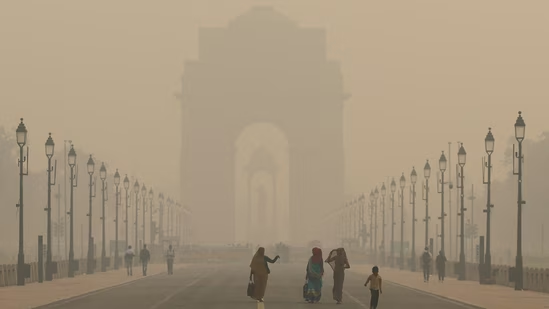

Pollution is quietly fueling a new wave of Indian cancers. Come the festive season and the onset of winters in India, along with stubble burning practices in Delhi-NCR, and this risk will increase manyfold.
In an interview with HT Lifestyle, Dr Shirish Alurkar, senior consultant, medical oncology at HCG Aastha Cancer Centre, Ahmedabad, countered that, though cancer has long been associated with lifestyle factors such as tobacco use, diet, and genetics, a quieter, more insidious driver of India’s rising cancer burden is pollution, both indoor and outdoor.
He added, “From the toxic smog blanketing cities to the smoke of cooking stoves in rural homes, environmental pollution is steadily reshaping India’s cancer landscape.”
‘More non-smoking women and younger patients are developing cancers…’
To highlight how air pollution leads to a rise in lung cancer patients, Dr Shirish noted, “India records over 1.4 million new cancer cases annually, and this number is projected to reach 1.57 million in 2025.”
Moreover, a 2022 study by the World Health Organisation (WHO) states that: “Air pollution is responsible for 29 percent of all lung cancer deaths globally. Among these, lung cancer has emerged as one of the fastest-growing forms.”
The oncologist stresses that what is particularly alarming is the rising incidence of lung cancer among non-smokers, pointing towards environmental exposures as a major culprit. “Doctors across major cancer centres report seeing more non-smoking women and younger patients developing cancers that were once largely confined to smokers and the elderly,” he added.
‘Prolonged exposure increases the risks’
Dr Shirish said, “Outdoor air in India’s urban centres often exceeds safe particulate matter (PM2.5) limits many times over.” These microscopic particles penetrate deep into the lungs and cause:
chronic inflammation,
and can even enter the bloodstream, leading to DNA damage and cancer.
“Alongside fine dust, prolonged exposure to pollutants such as nitrogen oxides, benzene, and polycyclic aromatic hydrocarbons from vehicles and industries, known carcinogens, increases the risks not only of lung cancer but also of throat, bladder, and breast cancers,” the oncologist warned.
You are not safe indoors, either
While city dwellers struggle with smog, Dr Shirish points out that millions of rural and low-income urban households face indoor air pollution. “Burning solid fuels like coal, wood, or dung for cooking releases carcinogens at levels several times higher than outdoor pollution. Women, who spend long hours near cooking fires, are disproportionately affected,” he stated.
“Studies show that people exposed to solid fuel smoke face three to four times higher risk of lung and throat cancers compared to clean-fuel users,” the oncologist added.
Additionally, he points out that pollution’s role in cancer is not limited to the air we breathe. “Industrial waste, pesticides, and heavy metals frequently contaminate soil and water sources. Long-term exposure has been linked to gastrointestinal cancers, prostate cancer, and even blood cancers. These risks often remain hidden until clusters of cases emerge around industrial zones or agricultural belts with heavy pesticide use,” Dr Shirish claimed.
Why is the risk rising now?
Why is cancer linked to pollution becoming more visible now? Per Dr Shirish, one reason is latency. “Many cancers take years to develop, and today’s cases reflect past decades of exposure. Another reason is lifestyle change: as smoking rates plateau, the proportion of cancers driven by environmental pollutants becomes clearer. Moreover, India’s rapid urbanisation and industrial growth have dramatically increased exposure levels in the past 20–30 years,” he explained.
“Pollution is not just a nuisance but a slow, silent carcinogen shaping India’s future disease burden. Unless urgent action is taken, the country risks a new wave of cancers that no hospital expansion alone can manage,” Dr Shirish said.
Note to readers: This article is for informational purposes only and not a substitute for professional medical advice. Always seek the advice of your doctor with any questions about a medical condition.
For clarifications/queries, please contact Public Talk of India at:
+91-98119 03979 publictalkofindia@gmail.com

For clarifications/queries,
please contact Public Talk of India at:

